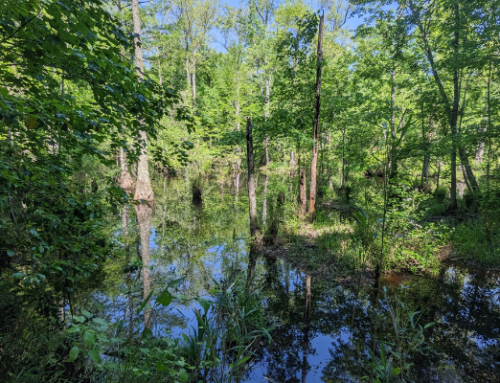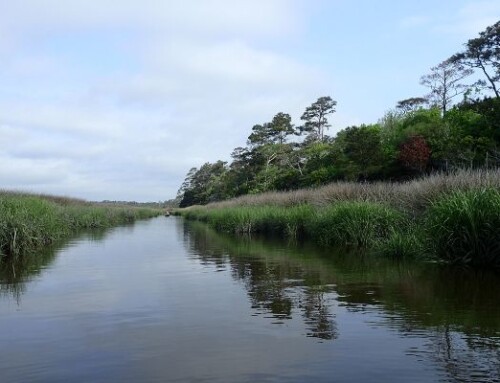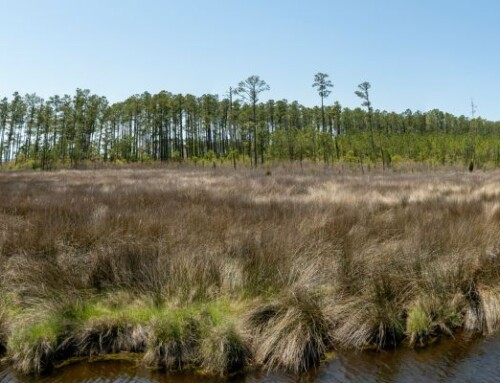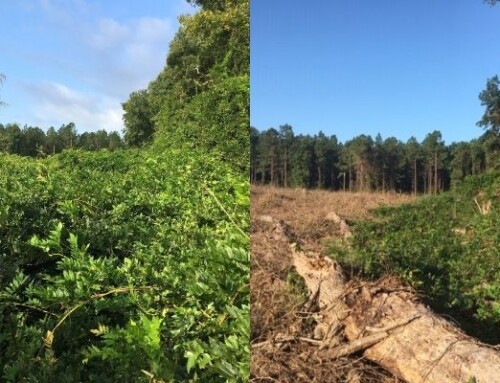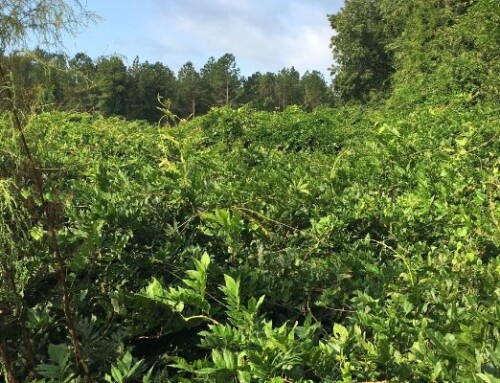Abbey Nature Preserve and the Coastal Land Trust. . .Just the Facts
The Coastal Land Trust started working with the Foy family in 2005 to permanently conserve a portion of their Pender County property. In 2007, the Coastal Land Trust purchased a permanent conservation easement, a legally binding agreement that imposed permanent conservation restrictions*, on 31.64 acres of the property with grant funds provided by the North Carolina Clean Water Management Trust Fund (now known as the NC Land and Water Fund). As a result, this conservation easement is now held by the State of North Carolina. Fortunately, the Foy family also donated a permanent conservation easement on an additional 31.07 acres of their land to the Coastal Land Trust. As a result, a total of 62.71 acres of the larger Foy property was permanently conserved under these two agreements. The Foy family continued to own the 62+ acres of land, subject to the permanent restrictions in the conservation easements, which restrict residential and commercial development on this portion of the property.
The conservation easements do not prevent the landowners from selling the property, however any sale is subject to the conservation easement restrictions. The conservation easement restrictions are permanent and binding on all future owners of the 62.71-acre portion of the larger property. The Coastal Land Trust does not own the property subject to the easements, but it does and will continue to monitor and enforce the 62.71-acre easement restrictions regardless of who owns the property.
Even though the conservation easements do not require that the public be able to access the property after the Foy family entered into the conservation easements, they generously opened a portion of their property to the public as the Abbey Nature Preserve, named in honor of the late Abbey Foy. The Abbey Nature Preserve includes all of the property protected by the conservation easements held by the Coastal Land Trust and State plus additional land owned by the family that is not restricted under any conservation agreement (see NC Coastal Land Trust’s website).
The Abbey Nature Preserve has been owned and managed by the Foy Family and has been a gift to the public for many years. The family is not required to open up their land for use by the public, and, as the owners of the property, they have the right to sell their land, and, as was the case with the Foy Family, future owner(s) do not have to continue to allow public access.
The Foy Family recently sold their property (including the 62.71 acres subject to the conservation easements) to Mungo Homes. The Coastal Land Trust will continue to monitor and enforce the terms of the conservation easements on the 62.71-acre portion of the larger property.
Since 2007, the Coastal Land Trust has been interested in acquiring additional conservation easements on other portions of the Foy Property. Funding for conservation projects is not always available and recent increases in land value in the New Hanover and Pender County areas, especially along U.S. Highway 17, have made attempts to purchase additional conservation easements cost prohibitive to the Coastal Land Trust. However, Pender County recently announced that it will lease the 62 acres of land subject to the conservation easements, the Abbey Nature Preserve, from the new owner, Mungo Homes, to ensure that portion of the property will remain open to the public. See https://www.pendercountync.gov/2022/07/pender-county-to-operate-and-maintain-abbey-nature-preserve/.
___________________________________________________________________
Note: Conservation easements are voluntary legally binding agreements between a private land owner and a land trust, other qualified conservation organization, or a county or municipality, in which the land owner continues to own the land but agrees to place permanent restrictions on all or a portion of the property to protect its conservation values. That is, the owner restricts or gives up certain rights (e.g., development) to use the land. Conservation easements are legal tools used to permanently protect ecological, scenic, historical and/or recreational values of property and are one of the many ways that the Coastal Land Trust has been able to conserve tens of thousands of acres in eastern North Carolina.


